Yin Xiuzhen
14th February – 26th March 2009
Anna Schwartz Gallery Carriageworks
In the mid 1980s, Yin Xiuzhen was one of only two women in a class of thirteen students at her Beijing art school. This imbalance is now slowly changing however it is still typically men who go on to forge careers in contemporary art, while women (mostly) leave the profession to pursue marriage and family. Of the women who are making important inroads, perhaps the most significant is Yin Xiuzhen.
Yin Xiuzhen’s work investigates the personal and domestic, gently mocking the aggression in some male practice, and manifesting sensitivity that often belies her subject matter. While much contemporary Chinese art is perhaps best known for radical photographic work (stemming from tough performance practice), Yin’s work is, by contrast, concerned with domesticity, and more broadly, the environment. There is nothing doctrinaire or strident in the work; it remains politically potent.
Recently Yin has begun to make ‘paintings’ in cloth. She typically re-uses old clothes in order to construct works that quietly and humorously investigate modernist abstract practice, within the socio/political frame of her particular interest; the plight of the individual within Chinese social organisation. The works comment on the conformity necessary when living in an over-crowded social network, where social interaction is inevitable and (necessarily) controlled. From a distance, the works appear to be large abstractions; cool expressions of a modernist practice. In close proximity they evoke intense human dynamics and interaction, through the very act of breathing.
Perhaps the most famous works, the Portable City series are cloth constructions in suitcases that are highly personal apprehensions of major metropolises. Here, the artist makes models of places she is interested in. These are replete with skyscrapers, bridges, roads, street sounds, music and lights, forming whimsical and idiosyncratic portraits of place.
For this current exhibition, Yin has made three suitcase works: Portable City: Melbourne (2009), Portable City: Jia Yu Guan (2009), and Portable City: Shenzhen (2008).
The Melbourne suitcase is based on Yin’s experience of living in the city (for three months) and her love of its sophisticated charms. This suitcase includes the concert hall, Saint Paul’s Cathedral, the National Gallery of Victoria, the Eureka Tower and Federation Square, as well as Flinders Street Station and the city skyline; a full portrait of the city centre.
Her portrait of the Chinese Silk Road city, Jia Yu Guan, is intensely personal, etched in Yin’s memory as an emotional site of family history. It was the place where her father was forced to work during the 1970s, like many other Chinese fathers, separated for long periods from his family. Missing her husband but unable to read or write, Yin’s mother asked the young Yin to write to her father on her behalf.
The Shenzhen suitcase reflects Yin’s interest in broader social and environmental issues. It is a portrait of a city representative of the new industrialised China. Shenzhen, once a small fishing village, is now a huge and growing mega-city, created over the last thirty years.
In The Unbearable Warmth (2008), scarves are used to represent millions of only children in China. Government family planning policy has created huge social problems; manifest in daily life in China, where single children become the sole focus of intense family interest. The ‘suffocation’ this engenders is very tenderly commented upon here. A thousand scarves are stitched together to form an enormous ripple, stretching out to an implied infinity of problems.
In the series Candy, the artist has made beautifully observed paintings of the candies discarded by her daughter; a daughter who is sometimes bored and lonely as a Chinese only child and whose fingers play with the chewing gum in the video work opposite.
Exhibited in the Chinese pavilion at the Venice Biennale in 2007, Weapon (2003) is layered with meaning, referencing ancient Chinese spears, the domestic production of garments and communication towers. The piece protests the power of the media in an authoritarian society and the aggrandisement of this control. The forms are covered with hand-knitted fabrics, which express (literally) a kind of ‘home spun’ subversion of the violence of the implements.
Yin Xiuzhen is an artist for whom the personal and everyday critically informs investigated subject matter. Her deeply humanist perspective is contextualised within an apprehension of very broad social and political issues that while being particularised within the Chinese contemporary experience, resonate with us all.
Simeon Kronenberg, 2009
Images
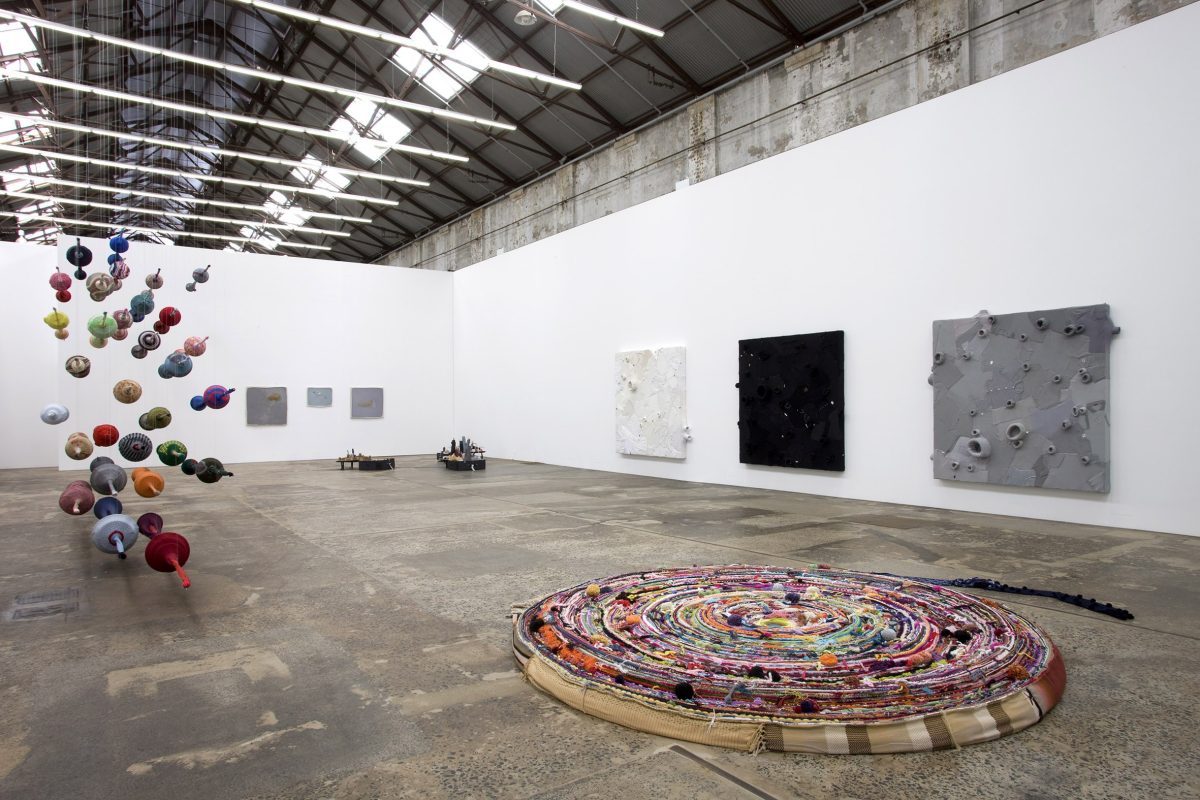
Yin Xiuzhen
Yin Xiuzhen, 2009
installation view, Anna Schwartz Gallery, Carriageworks
Photo: Paul Green
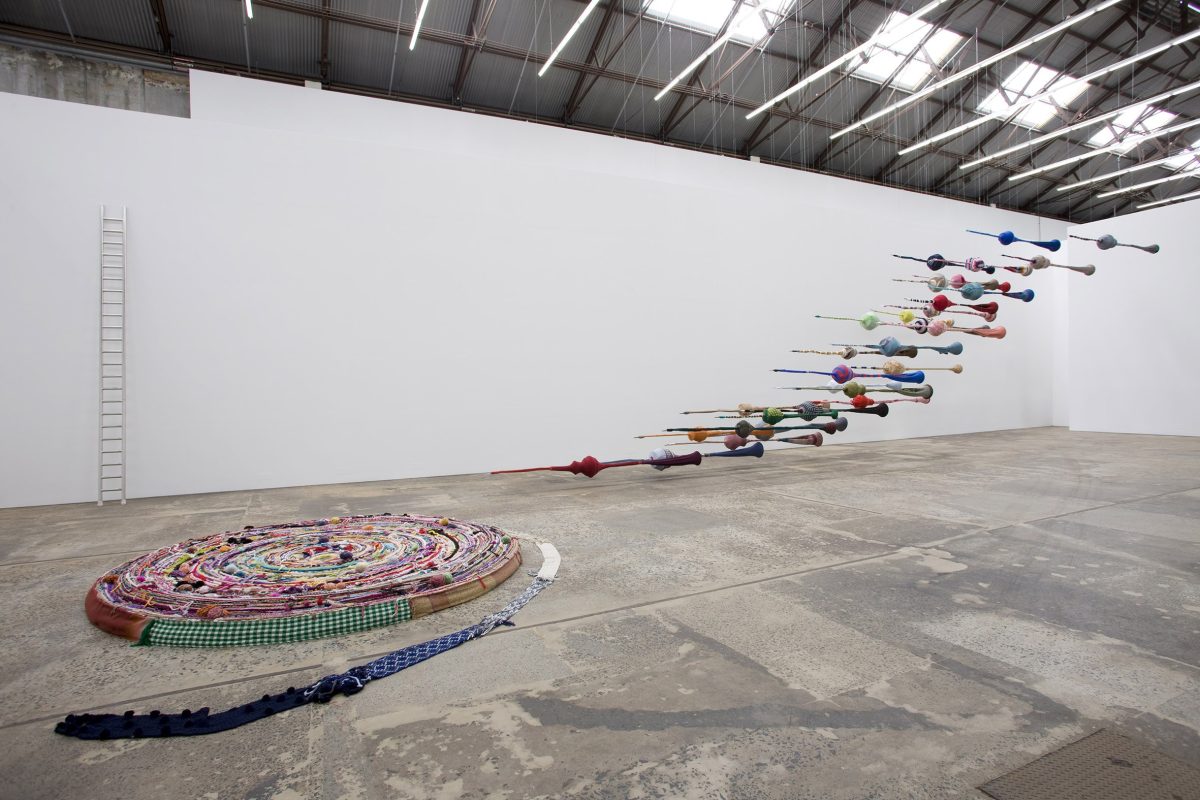
Yin Xiuzhen
Yin Xiuzhen, 2009
installation view, Anna Schwartz Gallery, Carriageworks
Photo: Paul Green
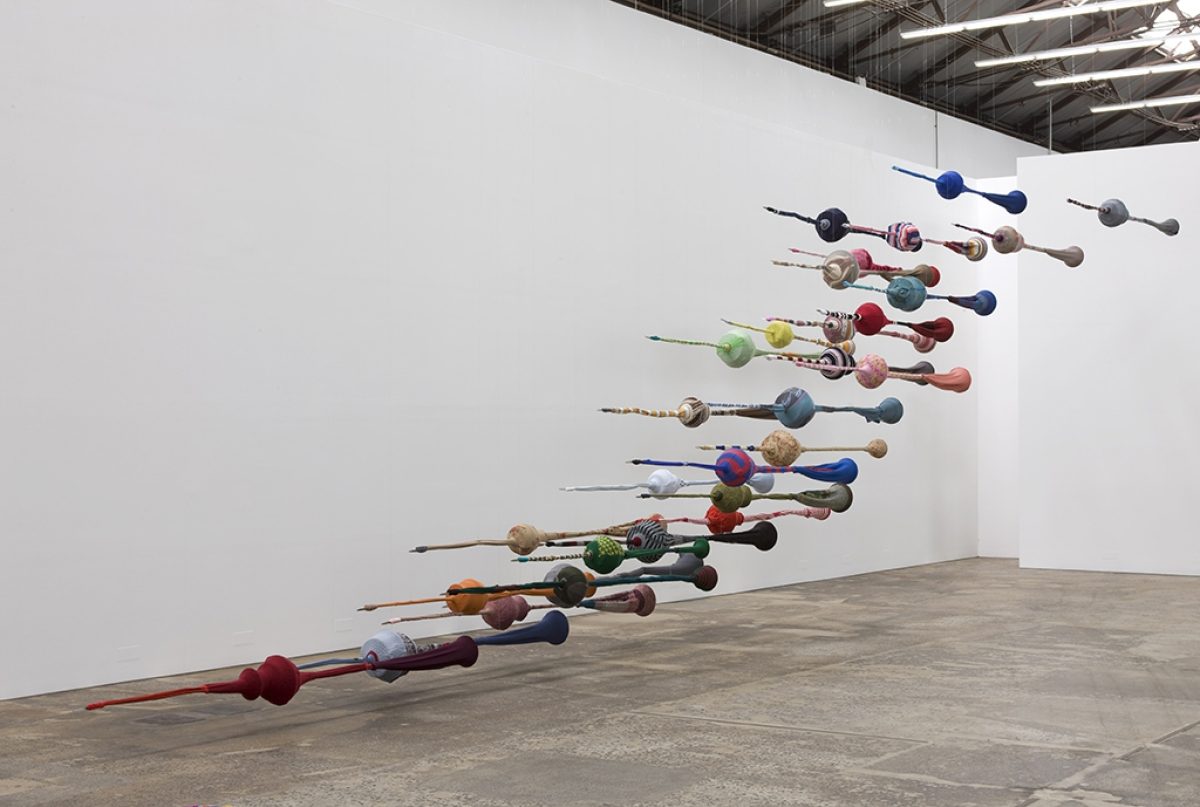
Yin Xiuzhen
Weapon, Everyday objects
Dimensions variable
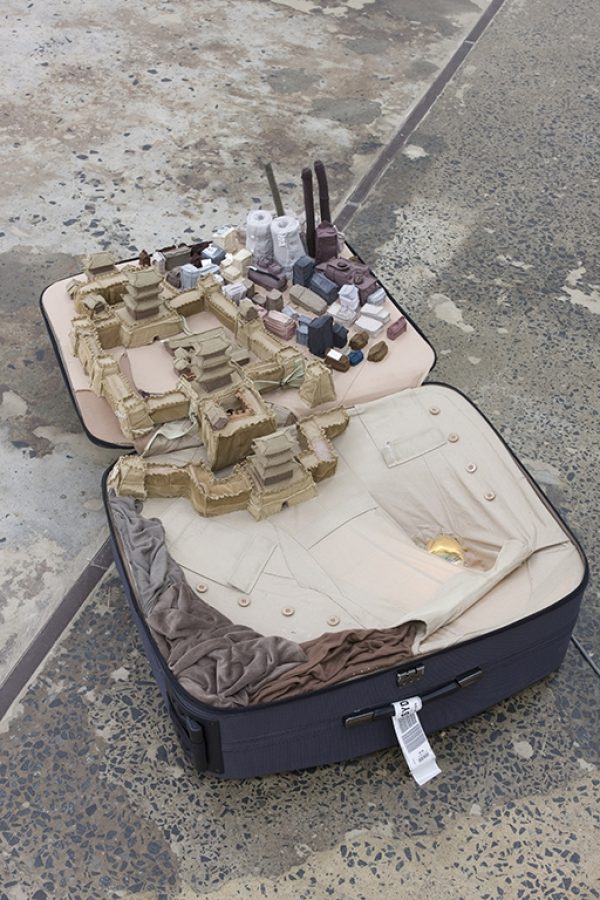
Yin Xiuzhen
Portable City: Jia Yu Guan, 2009
Suitcase, used clothes, magnifying glass, map, sound
152 x 88 x 28 cm (with the suitcase open)
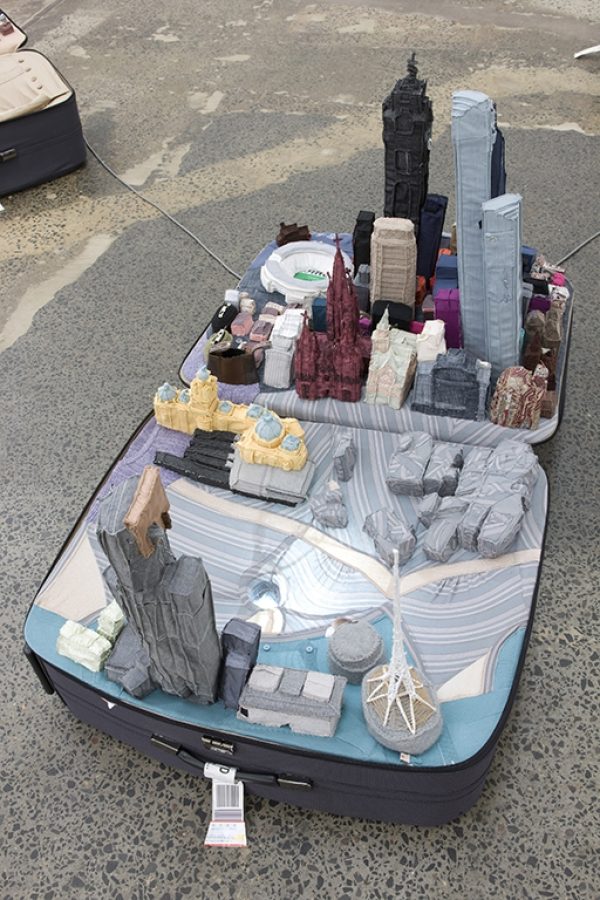
Yin Xiuzhen
Portable City: Melbourne, 2009
Suitcase, used clothes, magnifying glass, map, sound
152 x 88 x 28cm (with the suitcase open)
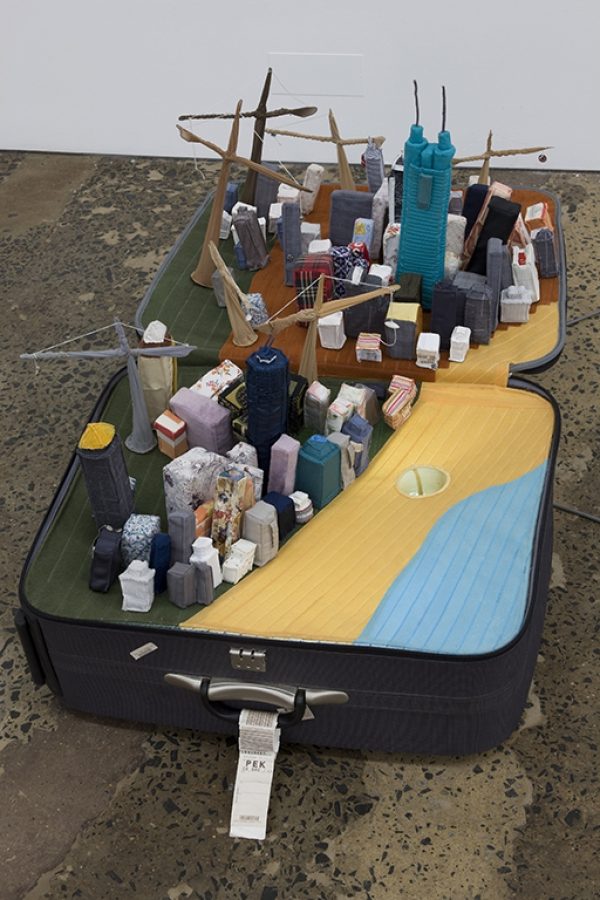
Yin Xiuzhen
Portable City: Shenzhen, 2003
suitcase, used clothes, magnifying glass, map, sound
136 x 80 x 25cm (with the suitcase open)
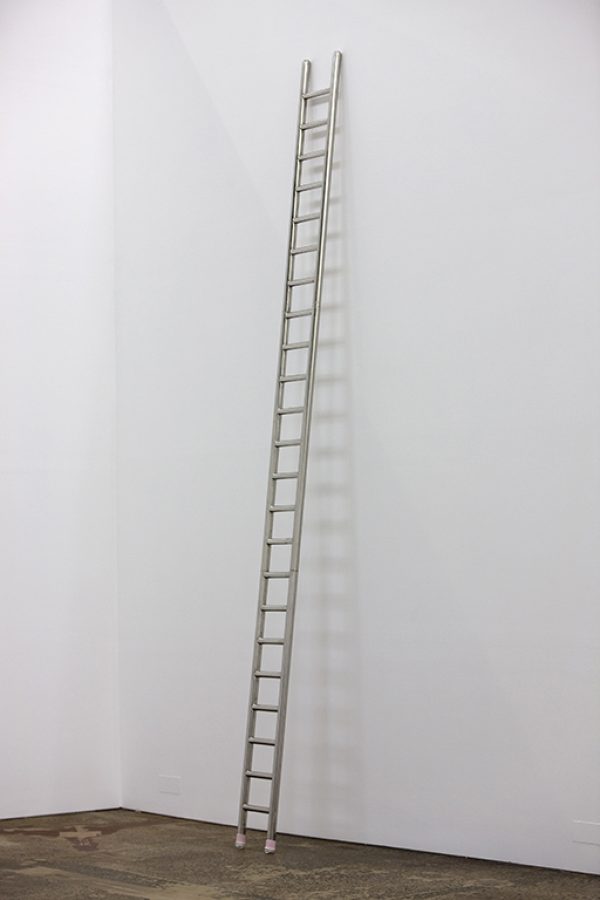
Yin Xiuzhen
Ladder, 2007
Stainless steel, socks
490 x 35 x 5 cm
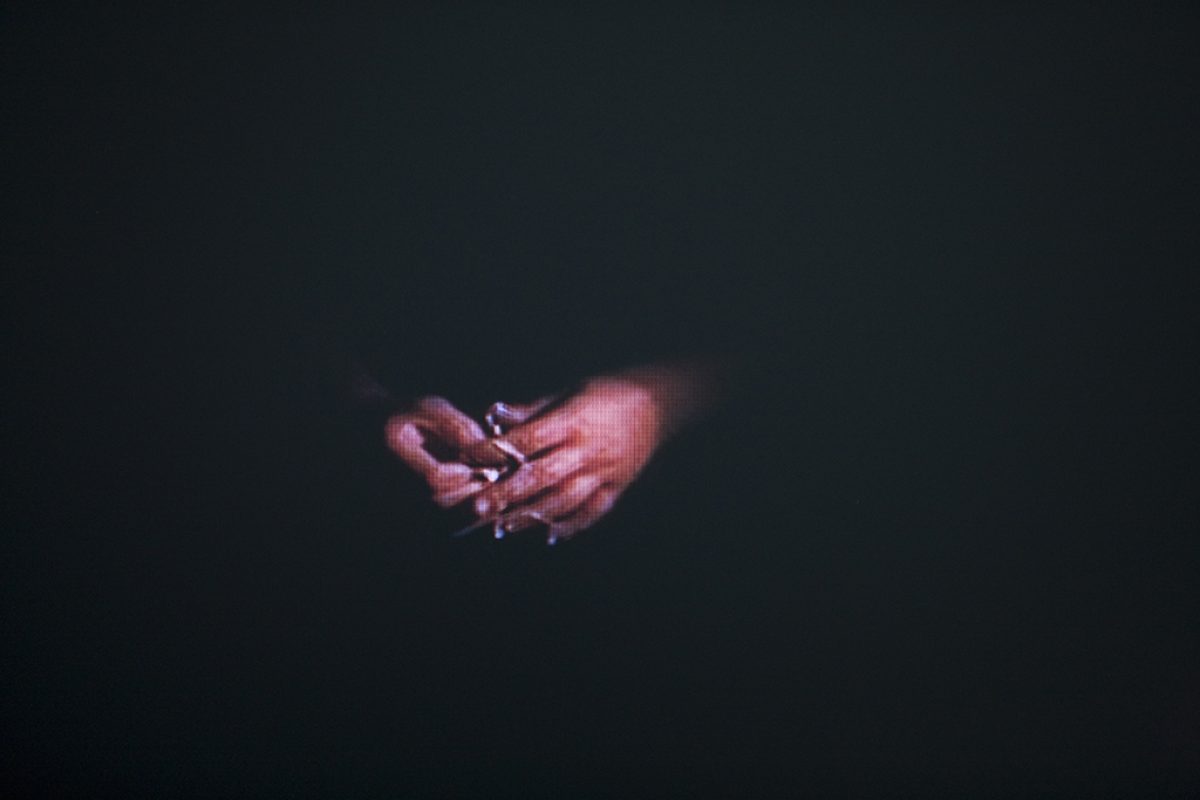
Yin Xiuzhen
Candy #9, 2007
Video
231.5 x 80.5 x 66.5 cm (in box)
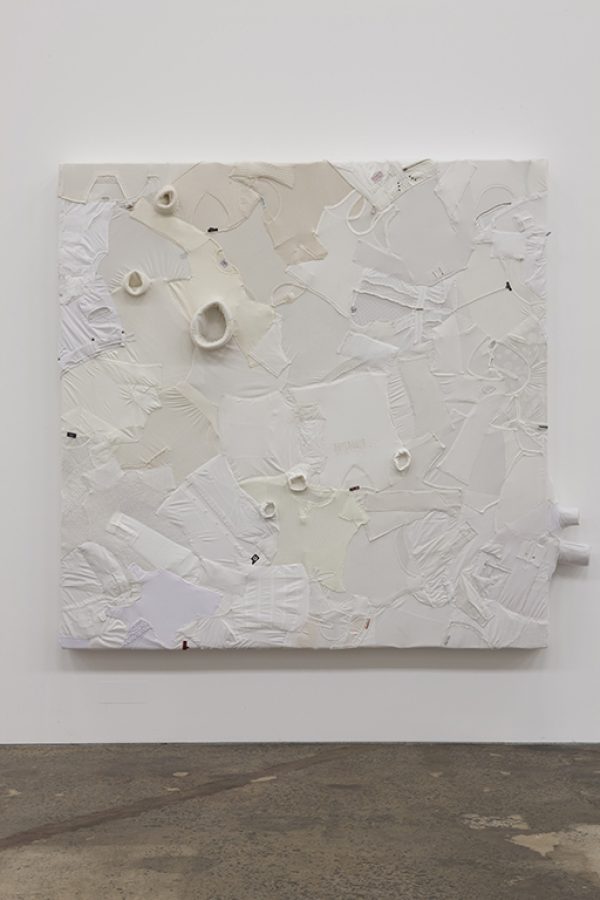
Yin Xiuzhen
Deep Breath #1 (white), 2008
Used clothes, wood frame
244 x 244 x 15.5cm
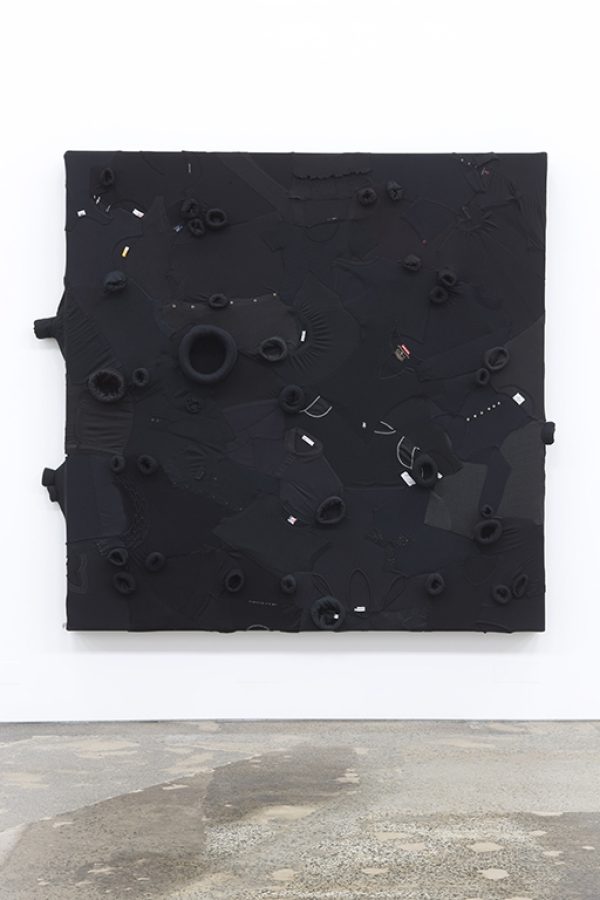
Yin Xiuzhen
Deep Breath #2 (black), 2008
Used clothes, wood frame
244 x 244 x 15.5 cm
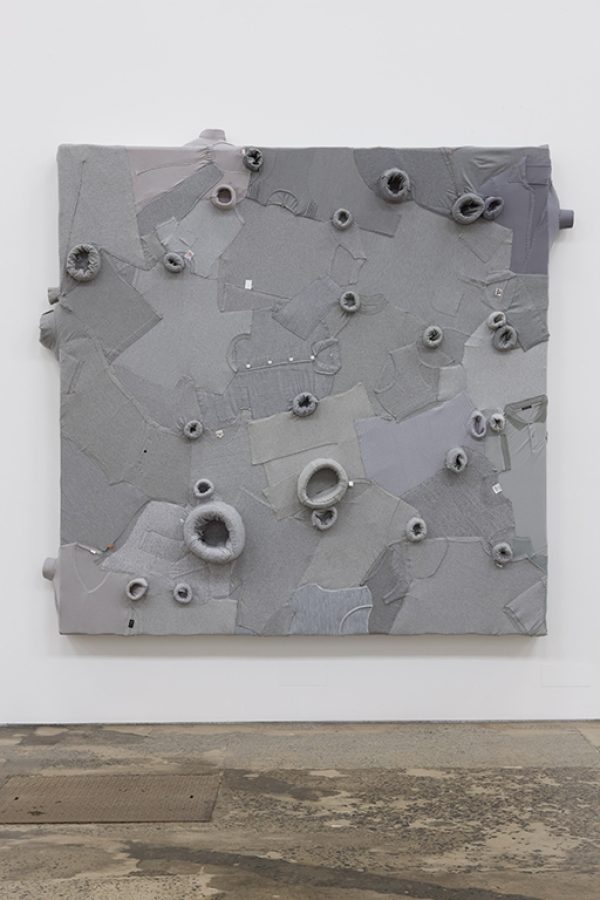
Yin Xiuzhen
Deep Breath #3 (grey), 2008
Used clothes, wood frame
244 x 244 x 15.5 cm
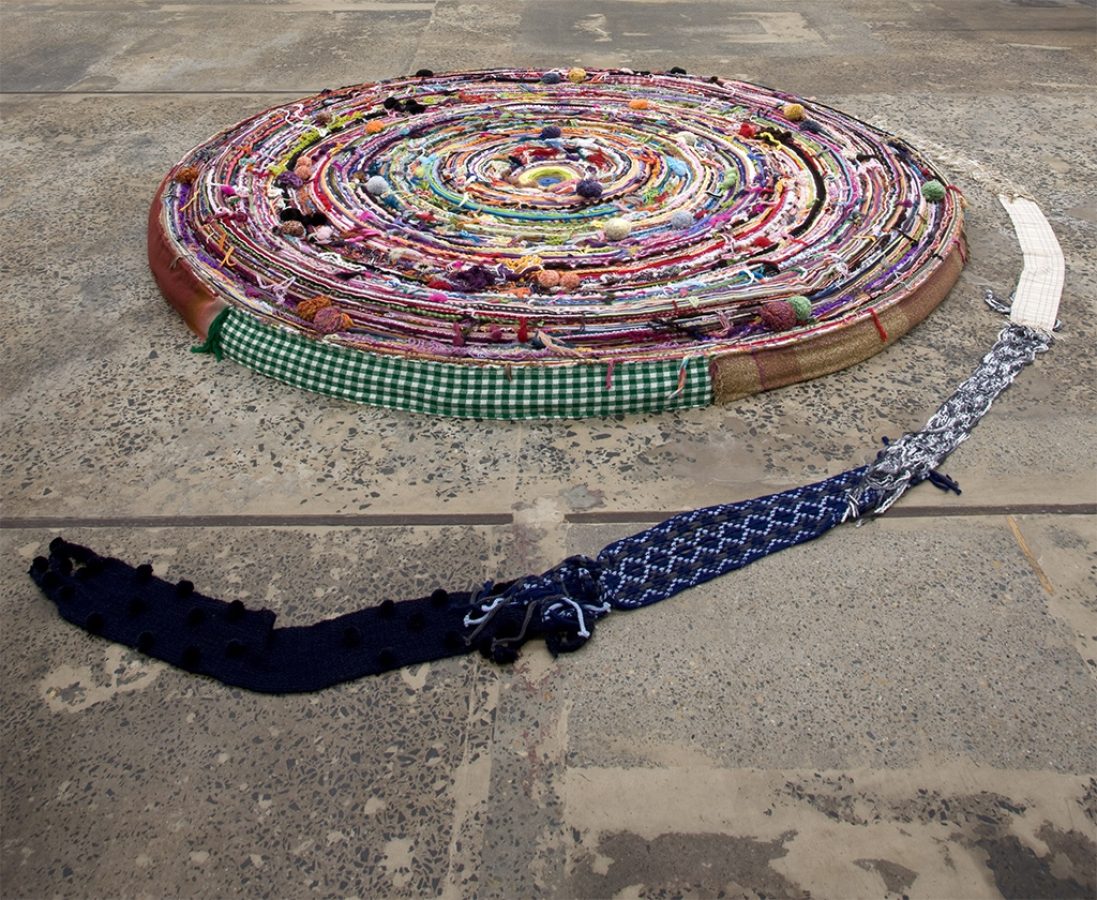
Yin Xiuzhen
The Unbearable Warmth, 2008
1000 Scarves
365 (diameter) x 25 (height) cm
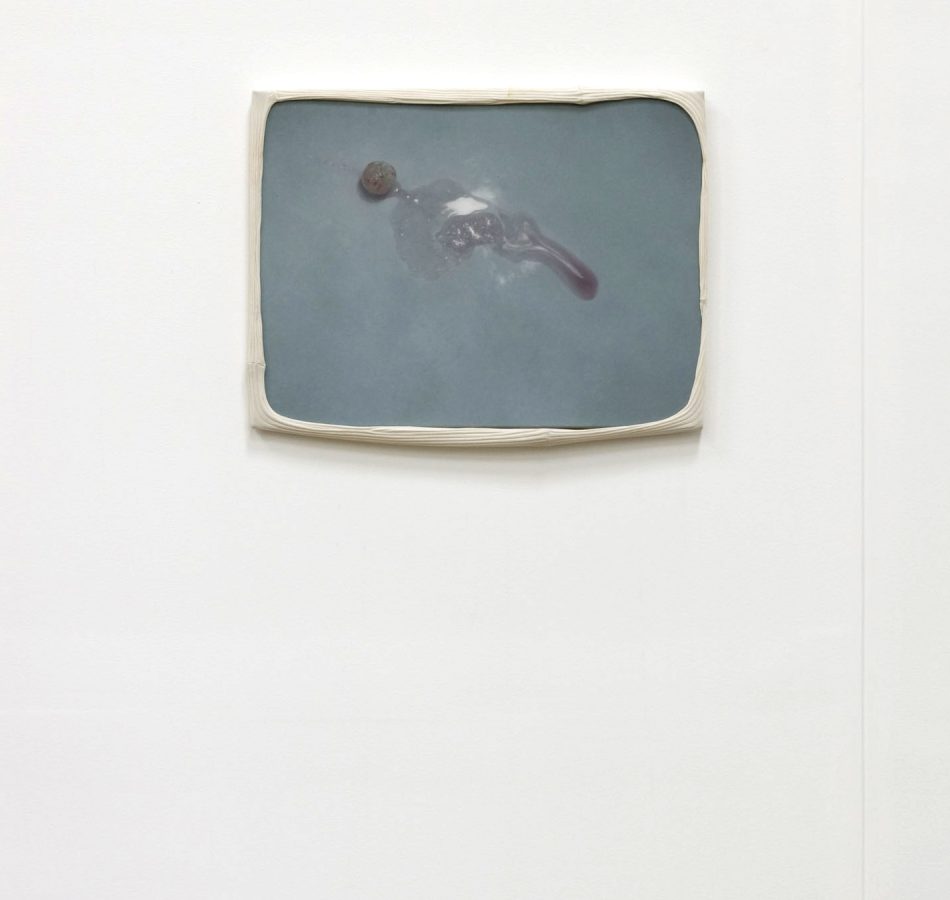
Yin Xiuzhen
Candy #6, 2007
Oil on canvas, used clothes
60 x 80 cm
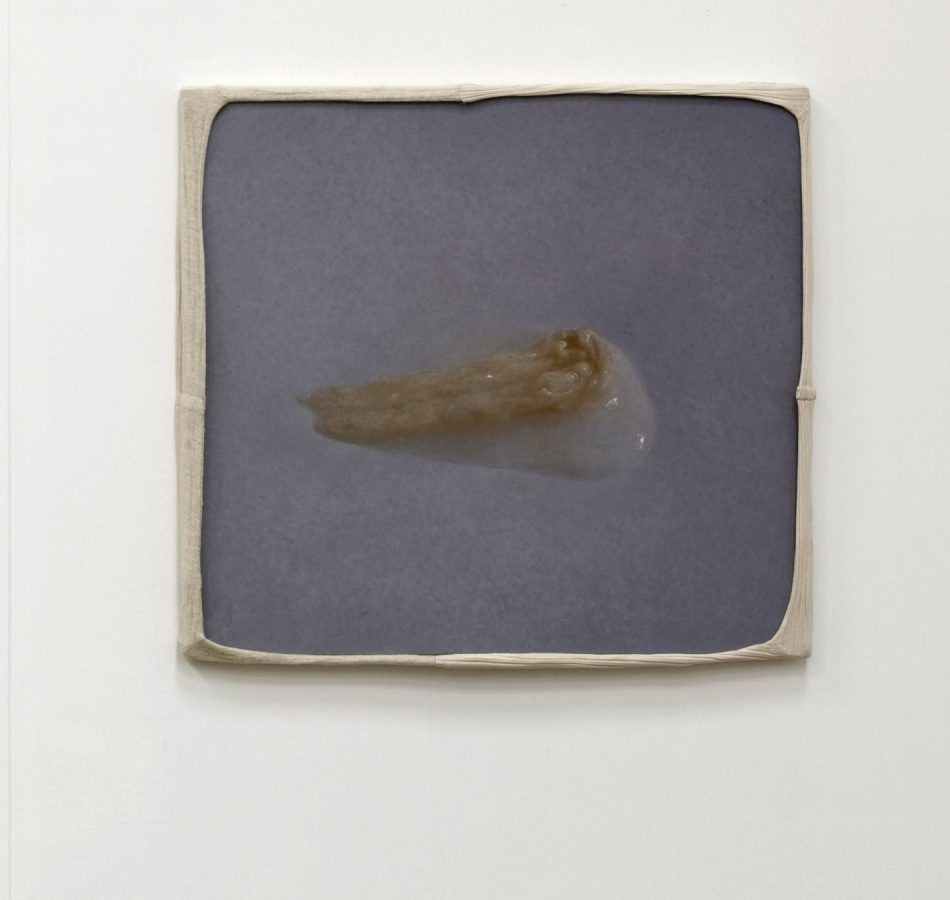
Yin Xiuzhen
Candy #7, 2007
Oil on canvas, used clothes
110 x 110 cm
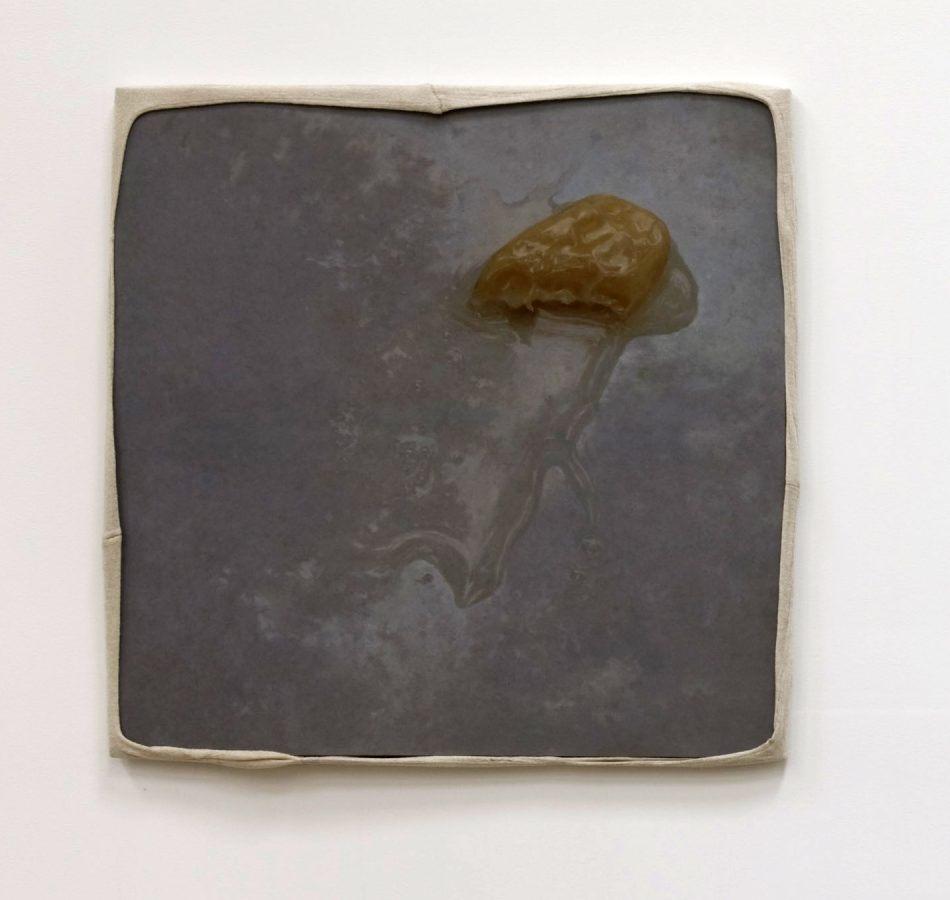
Yin Xiuzhen
Candy #8, 2007
Oil on canvas, used clothes
120 x 120 cm














